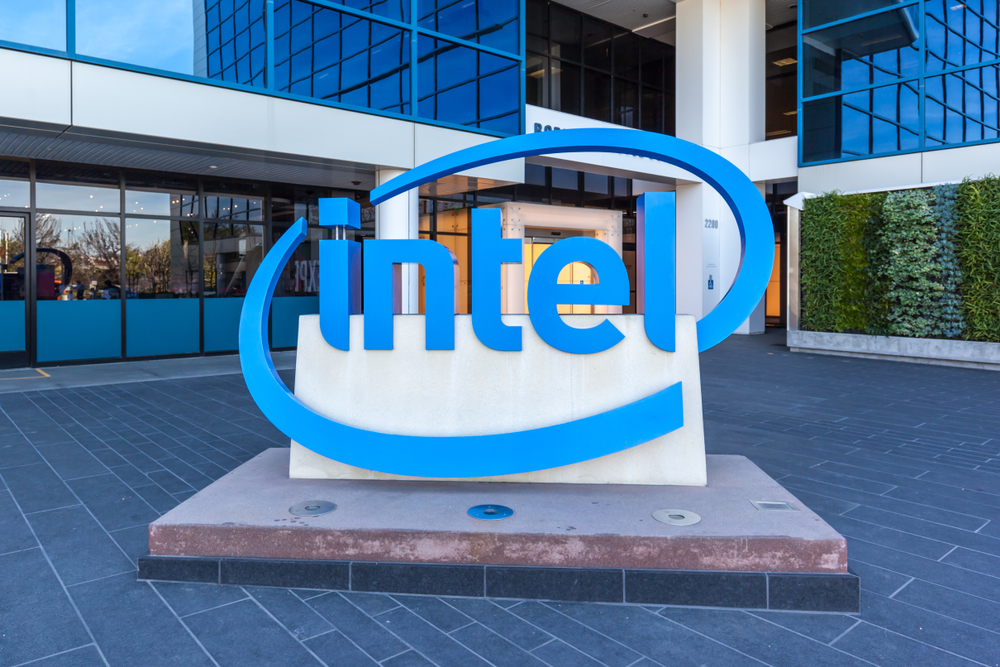Intel ordered to pay £1.56 billion for patent infringement
A jury ruled that Intel engaged in “willful blindness” when it infringed patents belonging to VLSI Technology


Intel has been ordered to pay $2.18 billion (£1.56 billion) in patent infringement damages to VLSI Technology following a Texas federal jury’s ruling.
The jury found that Intel infringed two patents belonging to Dutch chipmaker NXP Semiconductors, which was sold to VLSI in 2019, according to Bloomberg.
Although there was “no willful infringement”, the jury ruled that Intel engaged in “willful blindness”, as it failed to ensure that it wasn’t using someone else’s patent. As a result, the tech giant was ordered to pay $1.5 billion (£1.08bn) for infringement of one patent and $675 million (£483.8bn) for infringement of the second.
With total damages coming in at $2.18 billion, it’s the second-highest patent infringement payment awarded in US history, after the 2016 Idenix v Gilead case which saw the former win $2.54 billion (£1.82 billion) in a dispute involving hepatitis C drugs.
However, if the jury had found that Intel had, in fact, engaged in “willful infringement”, district court judge Alan Albright, who presided over the case, could have increased the damages by as much as three-fold.
Intel told Bloomberg that it “strongly disagrees” with the Texas jury’s verdict, adding: "We intend to appeal and are confident that we will prevail."
During the case hearings, Intel lawyer William Lee told the jury that VLSI “took two patents off the shelf that hadn’t been used for 10 years and said, ‘We’d like $2 billion’”. He also described the demand as “outrageous” and said that VLSI was entitled to no more than $2.2 million (£1.58 million).
Get the ITPro daily newsletter
Sign up today and you will receive a free copy of our Future Focus 2025 report - the leading guidance on AI, cybersecurity and other IT challenges as per 700+ senior executives
Following the ruling, VLSI chief executive Michael Stolarski told Bloomberg that the company is “extremely happy with the jury verdict”.
“We are very pleased that the jury recognized the value of the innovations as reflected in the patents,” he said.
Last month, Intel sued one of its former employees for stealing thousands of confidential documents and sharing them with Microsoft after joining the firm to give his new employers a competitive advantage in negotiations.
Having only graduated from City University in 2019, Sabina has already demonstrated her abilities as a keen writer and effective journalist. Currently a content writer for Drapers, Sabina spent a number of years writing for ITPro, specialising in networking and telecommunications, as well as charting the efforts of technology companies to improve their inclusion and diversity strategies, a topic close to her heart.
Sabina has also held a number of editorial roles at Harper's Bazaar, Cube Collective, and HighClouds.
-
 Should AI PCs be part of your next hardware refresh?
Should AI PCs be part of your next hardware refresh?AI PCs are fast becoming a business staple and a surefire way to future-proof your business
By Bobby Hellard
-
 Westcon-Comstor and Vectra AI launch brace of new channel initiatives
Westcon-Comstor and Vectra AI launch brace of new channel initiativesNews Westcon-Comstor and Vectra AI have announced the launch of two new channel growth initiatives focused on the managed security service provider (MSSP) space and AWS Marketplace.
By Daniel Todd
-
 How to empower employees to accelerate emissions reduction
How to empower employees to accelerate emissions reductionin depth With ICT accounting for as much as 3% of global carbon emissions, the same as aviation, the industry needs to increase emissions reduction
By Fleur Doidge
-
 Worldwide IT spending to grow 4.3% in 2023, with no significant AI impact
Worldwide IT spending to grow 4.3% in 2023, with no significant AI impactNews Spending patterns have changed as companies take an inward focus
By Rory Bathgate
-
 Report: Female tech workers disproportionately affected by industry layoffs
Report: Female tech workers disproportionately affected by industry layoffsNews Layoffs continue to strike companies throughout the tech industry, with data showing females in both the UK and US are bearing the brunt of them more so than males
By Ross Kelly
-
 How can small businesses cope with inflation?
How can small businesses cope with inflation?Tutorial With high inflation increasing the cost of doing business, how can small businesses weather the storm?
By Sandra Vogel
-
 How to deal with inflation while undergoing digital transformation
How to deal with inflation while undergoing digital transformationIn-depth How can organizations stave off inflation while attempting to grow by digitally transforming their businesses?
By Sandra Vogel
-
 How businesses can use technology to fight inflation
How businesses can use technology to fight inflationTUTORIAL While technology can’t provide all the answers to fight rising inflation, it can help ease the pain on businesses in the long term
By Sandra Vogel
-
 Embattled WANdisco to cut 30% of workforce amid fraud scandal
Embattled WANdisco to cut 30% of workforce amid fraud scandalNews The layoffs follow the shock resignation of the company’s CEO and CFO in early April
By Ross Kelly
-
 Some Tech Nation programs could continue after Founders Forum acquisition
Some Tech Nation programs could continue after Founders Forum acquisitionNews The acquisition brings to a close a months-long saga over what the future holds for Tech Nation initiatives
By Ross Kelly